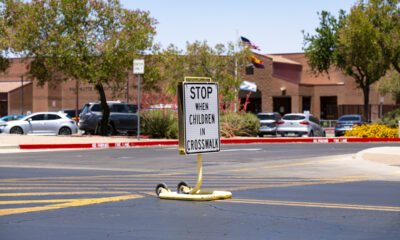2024 election
Amid November Crisis Fears, States Employ Legal Safeguards to Certify Votes

Georgia’s new election rule changes have raised concerns among election watchdogs about the potential for manipulation by local officials loyal to former President Donald Trump, particularly if he loses the upcoming election in November.
Election experts maintain that legal frameworks are in place to ensure the election results are certified despite these worries. They note that checks and balances exist at state levels to compel county election boards to adhere to their responsibilities. However, the process could be complicated by attempts to delay results, which may undermine the perceived integrity of the electoral system.
While Georgia’s situation has garnered significant attention, other swing states are also anticipating similar challenges regarding the certification process this election season. Traditionally a routine procedure, the importance of election certification has taken on new significance since the challenges following the 2020 presidential election.
The process of certification is critical and must adhere to established deadlines. On election night, the results posted are unofficial. Election officials then assess the tallies, check provisional and absentee ballots, and rectify any errors before certifying the results. State laws dictate local officials must finalize the results accurately, ultimately allowing the Electoral College to proceed with its duties.
Georgia has recently implemented two controversial rules that are causing alarm. The Georgia State Election Board, consisting of members with ties to Trump, adopted a stipulation that local officials certify elections only after undertaking a “reasonable inquiry,” without defining the term. Furthermore, another rule permits members of county election boards to scrutinize election documentation prior to certification—a change experts believe introduces unnecessary ambiguity.
Officials who supported these regulations claim they enhance election integrity. Yet, the reality is that such rules may inadvertently foster doubt and confusion among voters. Instances of discrepancies during the certification process are common and usually do not indicate systemic fraud.
In Arizona, the stakes surrounding election certification are similarly heightened. After an episode in November 2022, in which county supervisors resisted certifying election results and were subsequently compelled to do so by a court, current elections officials remain vigilant. Violations of certification responsibilities could lead to legal repercussions, particularly for conservative counties, where tensions over certification are more pronounced.
In Pennsylvania, delays in election certification have persisted, raising alarms over meeting federal certification deadlines. Recent experiences have shown that disputes can lead to extended waiting periods. The Pennsylvania Department of State expresses confidence in its ability to meet upcoming deadlines while preparing to act against any noncompliance.
Meanwhile, Michigan has established strong mandates for the certification process, making refusal to certify a dismissible offense with potential punitive measures. This follows prior attempts by some members to obstruct certification post-2020, though clear legal obligations now exist to prevent similar incidents.
In contrast, Wisconsin has maintained a straightforward approach to election certification, with laws ensuring that such duties are mandatory and subject to enforcement should any challenges arise. Meanwhile, Texas faces its own challenges, primarily from delays due to increased recount requests rather than outright refusals to certify.
Overall, as various states grapple with these evolving challenges, the emphasis on the integrity and promptness of the election certification process remains paramount. Election officials across the country are under pressure to maintain public trust amid heightened scrutiny and varied regulatory landscapes.


















